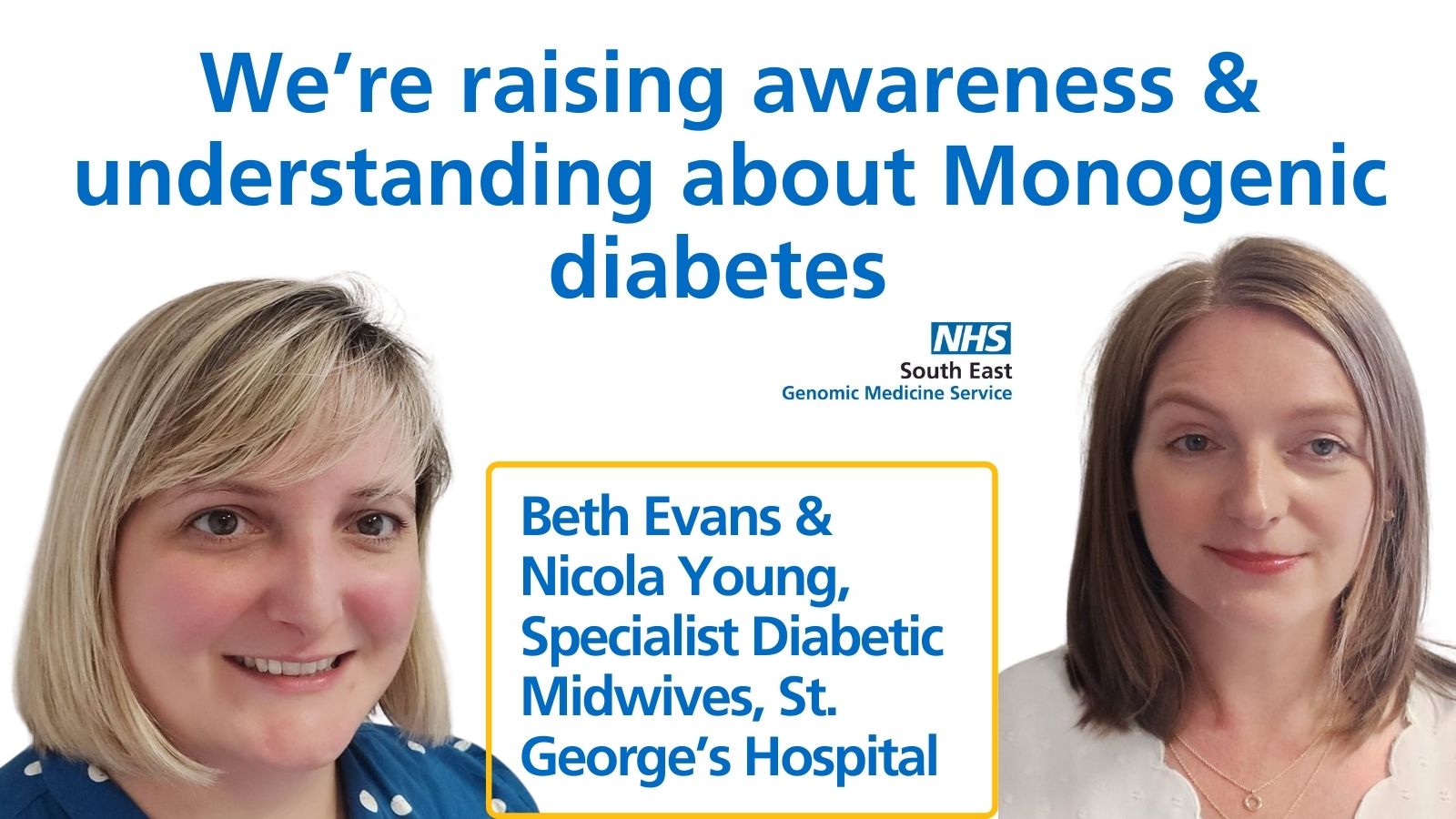 Midwives support thousands of women and families every day. They ensure people have the right information which enables them to make individualised decisions throughout their pregnancy, labour and beyond.
Midwives support thousands of women and families every day. They ensure people have the right information which enables them to make individualised decisions throughout their pregnancy, labour and beyond.
Midwives are already involved in genomics, although they may not realise it! Because midwives spend time with people to understand their medical, family and pregnancy history, they are vital in recognising who may benefit from additional genomic referrals or testing early in the pregnancy.
Screening tests are offered as part of the National Screening Programme. These include screening for specific inherited and genetic conditions.
Genomics and genetic technology is advancing at a rapid rate and is already improving people’s experience and outcomes. We can help midwives to ensure they are knowledgeable about genomics and can talk confidently to their patients.
Today on International Day of the Midwife, we want to celebrate every midwife and say thank you for all you do!
Regional NIPT midwife, Marianne Quinn wants to encourage fellow midwives to learn more about genomics and specifically Non-Invasive Prenatal screening (NIPT).
NIPT is a blood test that’s offered to women who have received a higher chance first trimester screening result for Down’s Syndrome, Edwards’ Syndrome or Patau’s Syndrome. NIPT is now also available to all women with a history of pregnancy with Down’s Syndrome, Edwards’ Syndrome or Patau’s Syndrome. The test is a safe and powerful tool that screens for all three conditions.
“I am the regional co-ordinator for NIPT (non-invasive pre-natal testing). That means I support midwives all over the South East, to ensure women get access to genomic screening if they need it. NIPT is now widely used across the NHS so it’s important that all midwives, not just specialist midwives, understand the power of this screening test for the women that they support.”
Nicola Young & Beth Evans are specialist midwives who are working to raise awareness and understanding about Monogenic Diabetes and Glucokinase Hyperglycaemia across the South East of England and more recently in the East of England too. Currently women with Glucokinase Hyperglycaemia are often misdiagnosed as having gestational or pre-existing diabetes, but together they are supporting more midwives to access genetic testing for their patients and achieve more accurate diagnoses.
“Monogenic Diabetes can often be misdiagnosed, and this can lead to unnecessary interventions during pregnancy. We’re helping professionals to consider if genomic testing is appropriate, and how an accurate diagnosis may impact not only the current pregnancy, but future pregnancies and the wider family.”
We can help you to put genomics into practice
The midwifery lead for genomics in the South East, Beth Shobbrook summed it up perfectly when she told us. “If you are a midwife, genomics will undoubtedly be relevant to you and the women and families you care for. Please do consider where genomics could fit in your practice.”
The team here at the South East Genomic Medicine Service can support you to set up pathways and educate staff teams. We’d love to hear from you and understand what you need to help put genomics into your practice.
